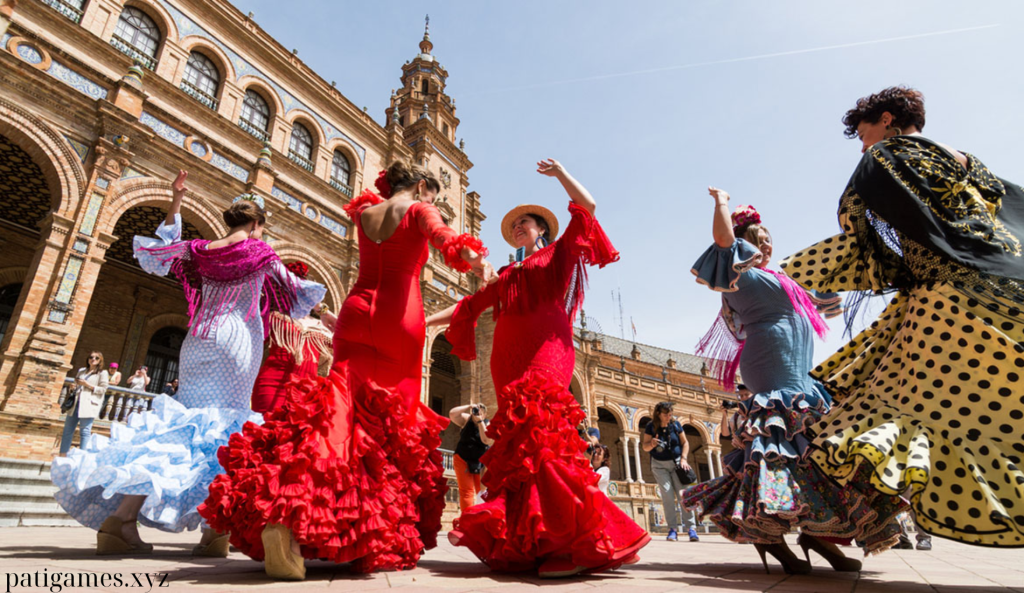Country Guides
Country Cultural Insights: Discover Unique Traditions and Customs of Different Nations
Traveling to different countries offers a unique opportunity to immerse yourself in diverse cultures and learn about their rich traditions and customs. Understanding and respecting these cultural nuances enhances your travel experience and fosters deeper connections with the people you meet. This guide explores the distinctive traditions and customs of various nations, providing valuable insights into the cultural fabric of different regions around the world.
Table of Contents
ToggleKey Highlights
- Unique Traditions: Explore distinctive cultural practices and celebrations.
- Local Customs: Understand everyday behaviors and social etiquette.
- Festivals and Celebrations: Discover significant cultural festivals and their meanings.
- Dining Etiquette: Learn about traditional dining practices and table manners.
- Religious and Spiritual Practices: Gain insight into the role of religion and spirituality in different cultures.
Unique Traditions: Celebrating Cultural Heritage
The Experience: Each country boasts its own set of unique traditions that reflect its historical, cultural, and social heritage. These traditions often include special ceremonies, rituals, and practices that play a significant role in the lives of local people.
Why It’s a Must-Have: Understanding these unique traditions helps you appreciate the cultural significance of various practices and enhances your overall travel experience by providing a deeper connection to the places you visit.
Top Unique Traditions:
- Japan’s Cherry Blossom Festivals (Hanami): Every spring, Japanese people gather under blooming cherry trees to celebrate the beauty of nature and the arrival of the season. Hanami is a time for picnicking, socializing, and enjoying the ephemeral beauty of the cherry blossoms.
- India’s Diwali Festival: Known as the Festival of Lights, Diwali is a major Hindu celebration marked by lighting lamps, fireworks, and sharing sweets. It symbolizes the victory of light over darkness and good over evil.
- Brazil’s Carnival: Carnival is a vibrant festival featuring parades, samba music, and colorful costumes. It is celebrated with enthusiasm across Brazil, showcasing the country’s rich musical and dance heritage.
Local Customs: Everyday Behaviors and Social Etiquette
The Experience: Local customs and social etiquette guide everyday interactions and behaviors. Understanding these norms helps you navigate social situations with respect and avoids unintentional offenses.
Why It’s a Must-Have: Being aware of local customs ensures respectful behavior and enhances your interactions with locals, contributing to a more positive and immersive travel experience.
Top Local Customs:
- France’s Greeting Rituals: In France, greetings often involve cheek-kissing, with the number of kisses varying by region. It’s also customary to address people with formal titles unless invited to do otherwise.
- Thailand’s Wai Greeting: In Thailand, the wai is a traditional greeting involving a slight bow with palms pressed together. It is a sign of respect and is used when greeting or bidding farewell.
- Germany’s Punctuality: Punctuality is highly valued in Germany. Arriving on time for appointments and social gatherings is considered a sign of respect and professionalism.
Festivals and Celebrations: Experiencing Cultural Festivities
The Experience: Festivals and celebrations are vibrant expressions of a country’s culture and traditions. Participating in or observing these events offers a glimpse into the local way of life and the significance of cultural heritage.
Why It’s a Must-Have: Engaging with cultural festivals provides memorable experiences and insights into the values and traditions of the host country.
Top Festivals and Celebrations:
- Spain’s La Tomatina: Held annually in Buñol, Spain, La Tomatina is a massive tomato fight festival where participants throw tomatoes at each other in a fun and messy celebration.
- Mexico’s Day of the Dead (Día de los Muertos): This colorful festival honors deceased loved ones with altars, offerings, and parades. It is a celebration of life and death, blending indigenous and Catholic traditions.
- Scotland’s Edinburgh Festival Fringe: The world’s largest arts festival, held in Edinburgh, Scotland, features a diverse range of performances, including theater, comedy, and music, attracting artists and audiences from around the globe.
Dining Etiquette: Understanding Traditional Practices
The Experience: Dining etiquette varies significantly around the world, reflecting cultural values and social norms. Knowing these practices enhances your dining experience and shows respect for local customs.
Why It’s a Must-Have: Adhering to dining etiquette helps you blend in with locals and enjoy authentic culinary experiences without causing offense.
Top Dining Etiquette Tips:
- Italy’s Pasta Etiquette: In Italy, it’s considered polite to twirl pasta with a fork rather than cutting it. Also, eating pasta with a spoon is generally avoided in traditional settings.
- Japan’s Chopstick Use: In Japan, avoid sticking chopsticks upright in a bowl of rice, as this resembles a funeral ritual. Don’t pass food directly from chopstick to chopstick, as this also mimics funeral customs.
- Morocco’s Traditional Eating Style: In Morocco, meals are often eaten with the right hand, using bread to scoop up food. It’s polite to wash your hands before and after the meal, as communal eating is common.
Religious and Spiritual Practices: Exploring Beliefs and Rituals
The Experience: Religion and spirituality play a significant role in many cultures, influencing daily life, rituals, and community practices. Understanding these aspects provides insight into the values and beliefs of different societies.
Why It’s a Must-Have: Respecting religious and spiritual practices deepens your cultural understanding and fosters positive interactions with local communities.
Top Religious and Spiritual Practices:
- India’s Yoga and Meditation: Yoga and meditation are integral to many spiritual practices in India, promoting physical and mental well-being. Participating in or observing these practices offers insight into their cultural significance.
- Nepal’s Buddhist Rituals: In Nepal, Buddhist rituals such as prayer flag offerings and spinning prayer wheels are common. These practices are believed to bring blessings and positive energy.
- Saudi Arabia’s Prayer Times: In Saudi Arabia, prayer times are strictly observed throughout the day. During these times, businesses may close temporarily, and it is important to show respect for the practice by avoiding disturbances.
Conclusion
Discovering the unique traditions and customs of different nations enriches your travel experience and fosters a deeper connection with the cultures you encounter. By understanding and respecting local customs, participating in cultural festivals, observing dining etiquette, and appreciating religious and spiritual practices, you gain valuable insights into the diverse ways people live and celebrate around the world. Embrace these cultural experiences with an open mind and a respectful attitude, and you’ll find that your travels become even more memorable and rewarding.
FAQ
How can I learn about local traditions and customs before traveling? Research your destination through travel guides, cultural blogs, and official tourism websites. Engage with local communities online or consult with travel experts to gain deeper insights.
What should I do if I’m unsure about local customs while traveling? Observe local behavior, ask polite questions, and follow the lead of locals. If in doubt, err on the side of respect and avoid actions that may be culturally sensitive.
How can I participate in local festivals and celebrations? Check local event calendars, inquire at tourist information centers, and engage with local communities to find out about upcoming festivals and celebrations. Ensure you understand any specific customs or dress codes associated with the event.
What should I know about dining etiquette in different cultures? Research dining practices for your destination and observe local customs. When in doubt, follow the lead of your hosts or fellow diners and practice good manners.
How can I respect religious and spiritual practices during my travels? Educate yourself about local religious practices, be mindful of sacred spaces, and avoid disruptive behavior. Show respect for religious customs and participate with sensitivity and an open mind.

